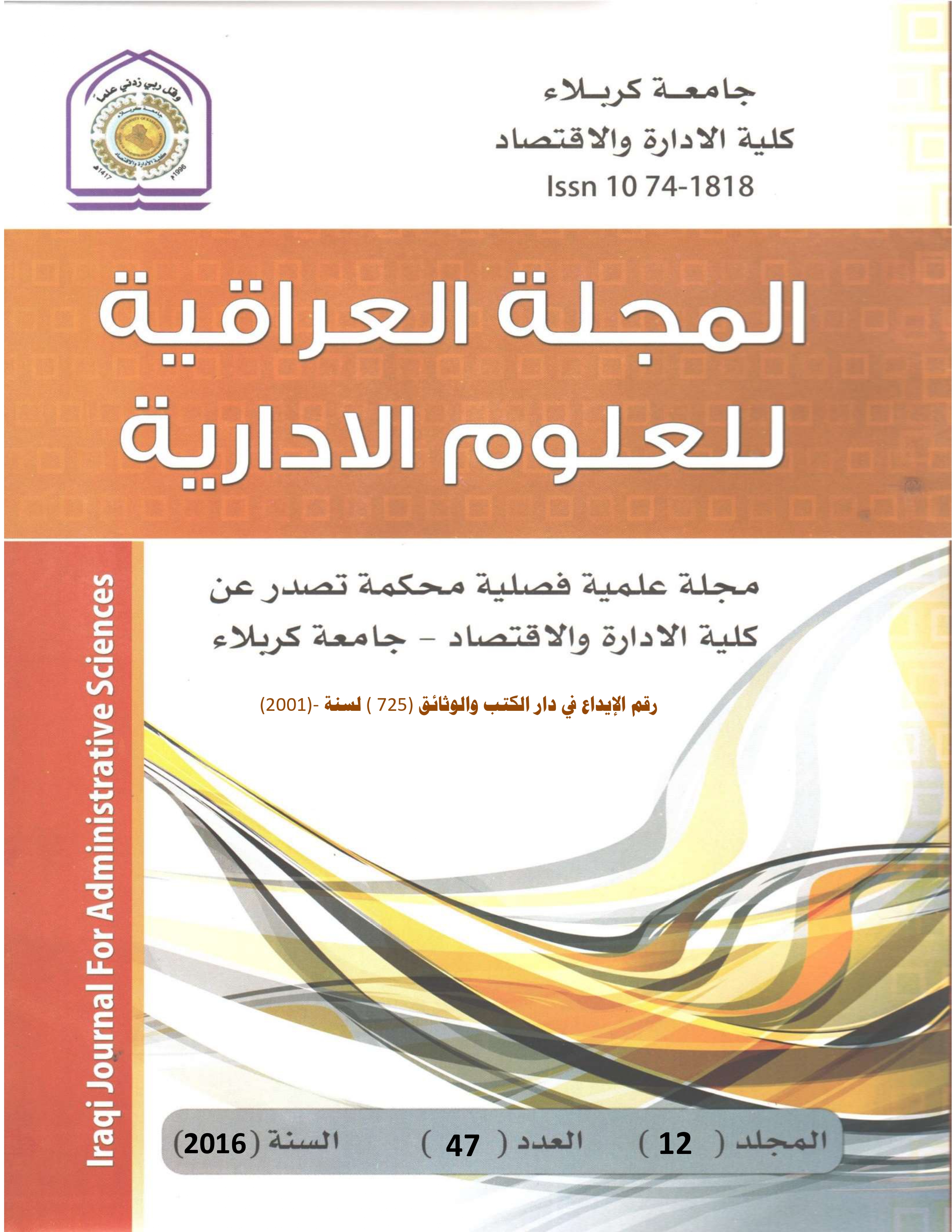Evaluating the performance efficiency of Iraqi Islamic banks: an applied study compared with Emirati banks for the period (2005-2014)
Keywords:
Performance efficiency, Iraqi Islamic banksAbstract
Expresses as banks, the backbone of the economy, his aorta, engine basis, and with the financial markets play a pivotal role in the financing of the rest of the economic sectors and effectiveness within the domestic economy. The simulation of the religion of Islam and consistent with the principles of the Chairperson had emerged from Islamic banks to fine-tune in content and details with the teachings of the religion in the area of finance and investment banking system and supporting the economy .Islamic banks are institutions to abide by all its work in accordance with the provisions of the Islamic Shariah and feature from the rest of the types of banks and multiple areas of funding or investment wording and does not deal with credit, limits the legitimate sales. Has widened the role of this type of banks in the economy is not at the level of the Islamic countries but extended to many Western countries, launched the Global banks develop branches of the Islamic Banking.
Now the Islamic banks rich scope and a center to attract many intellectuals and investors in the field of the financial and banking specifically, especially after its crises of the financial system in all its forms the latest global financial crisis (2007-2008).
The aim of this study to many of objectives, the most important of which is the evaluation of the efficiency performance of Islamic banks Iraq as a new experience in the financial arena Iraqi economic, assessing the efficiency and performance of some Islamic banks in the United Arab Emirates. Add to this the in-depth analysis of some of the performance indicators of the Chairperson and the measurement of their content, the study proceeds from the Major assumption the summarized the weakness of the efficiency of the performance of the banks and the Iraqi Islamic compared with their counterparts in the UAE, which emanate hypotheses multiple subnets.
References
- Hamedian, Bahmanyar," Financial Performance of Islamic Banks vs. Conventional Banks:The Case of Malaysia" , Eastern Mediterranean University, Gazimağusa, North Cyprus, January 2013.
- Nelson, Elizabeth Frasier," Bank Islam Malaysia A Global Leader in Islamic Finance", editorial Bank Islam Malaysia,2014.
- Iqbal, Munawar and Molyneux, Philip " Thirty Years of Islamic Banking : History, Performance and Prospects" Court Road, London , British ,2005.
- Imam, Patrick,& Kangni Kpodar ,"Islamic banking: How has it diffused", international monetary fund,( 2010).
- Pervez, Avais," Principles of Islamic Interest Free Banking in Pakistan: Study focusing on three Islamic Banks in Pakistan ",MALARDALEN UNIVERSITY , SWEDEN, School of Sustainable Development of Society and Technology , 2011 .
- Naceur ,Sami Ben; Barajas, Adolfo and Massara, Alexander "Can Islamic Banking Increase Financial Inclusion?", IMF Working Paper, International Monetary Fund,2015.
- Burke, Javier Villar," Assessing bank leverage through flows: an early warning tool of risk-taking ", Paper published European Commission, September 2014.
- Mishkin, Frederic S. & Eakins, Stanley G.," Financial Markets and Institutions",7th edition, prentice-Hall-Inc., New York, U.S.A.2012.
- Benjelloun, Hicham ," Financial leverage and the channeling of resources: profit loss sharing under the framework of Islamic financial institutions" Banks and Bank Systems, Volume 5, Issue 4, 2010.
- Jobst, Andreas A.& Solé ,Juan ," Operative Principles of Islamic Derivatives – Towards a Coherent Theory" , International Monetary Fund, IMF Working Paper , WP/12/63 ,2012.
- Abedifar , Pejman ; Molyneux , Philip ; Tarazi , Amine " Risk and Stability in Islamic Banking" , Université de Limoges, LAPE, 5 rue Félix Eboué, 87031 Limoges Cedex, France , 3 rd April 2011.
http://www.bankislam.com.my/home/assets/uploads/Bank-Islam-Malaysia_IB_SUMMER_14.pdf
Downloads
Published
How to Cite
Issue
Section
License
Copyright (c) 2016 Economics and Administration College - Karbala University

This work is licensed under a Creative Commons Attribution-NonCommercial-NoDerivatives 4.0 International License.
Authors retain the copyright of their papers without restrictions.










